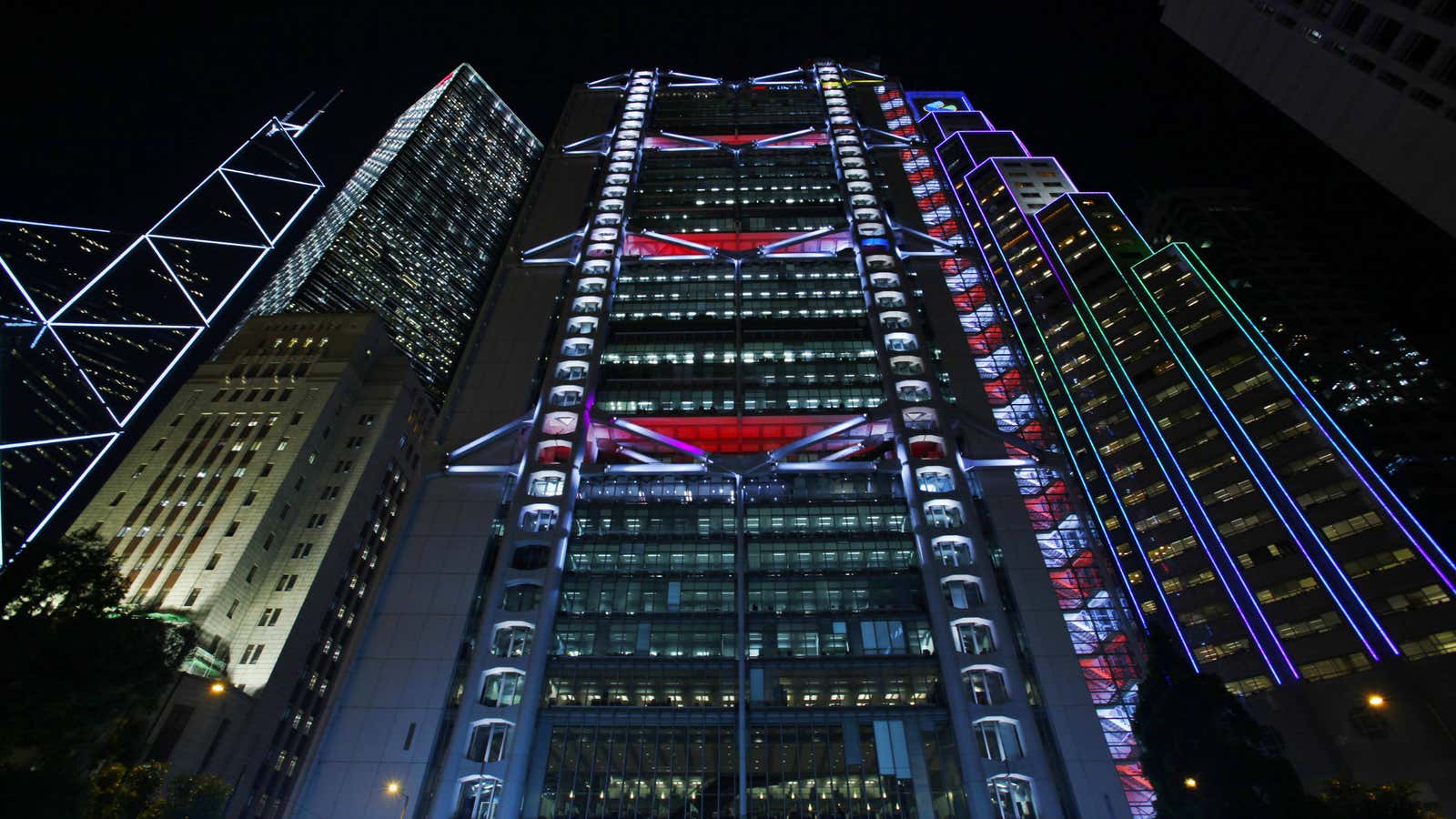For more than 125 years, from 1865 to the early 1990s, HSBC was headquartered in Hong Kong, the city where it was founded and where it makes much of its profits.
The Chinese government’s killing of hundreds of protesting students in Tiananmen in 1989, though, spooked the bank’s management deeply. It was a factor in a review of the company’s headquarters location, and the decision to move it to London in 1993, historians say. “Tiananmen Square was a huge event,” David Kynaston, co-author of The Lion Wakes: A Modern History of HSBC, said during a book reading in Hong Kong last year. It “undeniably” had an impact on HSBC’s decision to relocate to the UK, he said.
Since that 1993 move, HSBC has reviewed its headquarters location every three years, and top executives (paywall) often held a move back to Hong Kong out as a real possibility. But the Chinese government, which under president Xi Jinping has conducted a brutal crackdown on free speech, human rights, and his political opponents, appears to have spooked the bank’s board yet again.
HSBC just wrapped up its latest review of where the bank should be located, and despite the fact that some analysts estimated moving to Hong Kong could save the bank $14 billion, and Asia contributes most of the bank’s profits, HSBC will stay in London. The UK “has an internationally respected regulatory framework and legal system, and immense experience in handling complex international affairs,” the bank said in a statement on Feb. 15, and London is “home to a large pool of highly skilled, international talent.”
Unless there’s a major change, the decision is permanent, HSBC said. “The Board has decided that it is not necessary to continue the previous practice of reviewing the location of the Group’s headquarters every three years,” the bank said.
A bank spokesman would not elaborate on how much of a factor Beijing’s influence on Hong Kong played in the decision, but HSBC’s board reportedly enlisted former US secretaries of state Henry Kissinger and Condoleezza Rice for advice—a sign that politics, not the nitty-gritty of tax savings or employee recruiting played a big factor.
Beijing’s growing control over Hong Kong was certainly considered by the board, an unnamed HSBC “insider” told Reuters last month. “The situation in Hong Kong appears to be getting worse. You have to wonder if the city will remain a suitable base for an independent-minded, top global financial institution.”
Beijing’s government is violating the “Basic Law” and breaking the pledge it made to the UK, the UK foreign secretary said last week, a reference to the “involuntary” removal of British citizen and bookstore employee Lee Bo to mainland China. Beijing has been cracking down on Hong Kong booksellers who sell materials critical of president Xi Jinping and the Communist Party—a violation of a pledge to allow free speech in Hong Kong, made when the city was turned over from Britain to China.
HSBC’s decision will have financial implications for Hong Kong, and China, which could have used the extra jobs and tax revenue the move would have brought. With thousands of employees still in Hong Kong, the bank is by no means abandoning the city, but the headquarters decision shows the board lacks confidence in city’s future.




